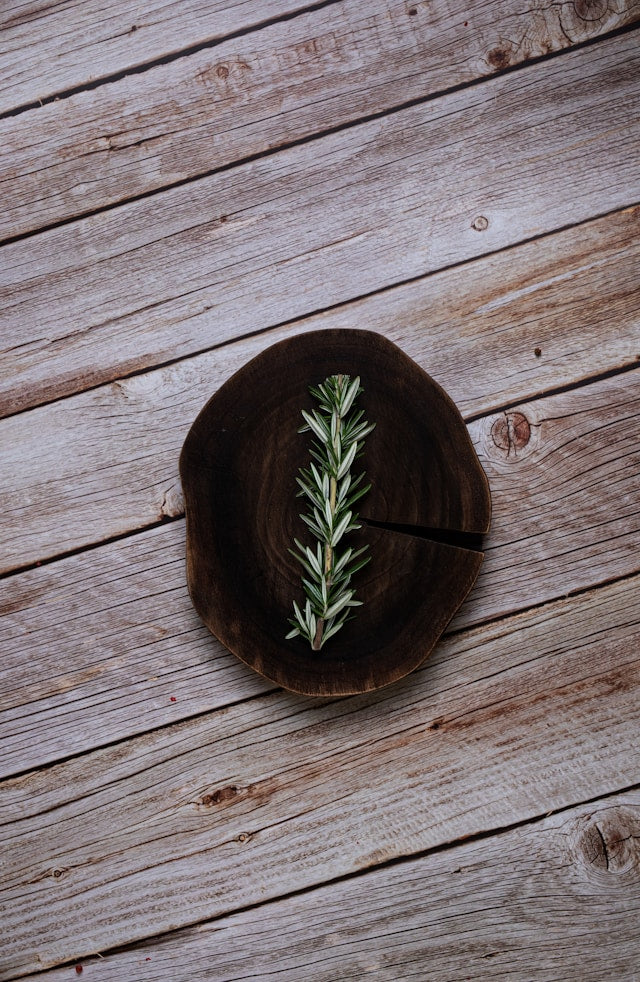

· By Brooke Hamilton-Benjestorf
Nature Calms
Nature calms. This phrase keeps coming to mind as I read up on the effects of different aromatic notes on our bodies, nervous systems, and energetic environments. It doesn’t surprise me that in the human world, where we often see ourselves as separate and outside of nature, we suffer from increasing and debilitating amounts of anxiety and depression. As we alienate ourselves from our natural resources, we increase our suffering.
The olfactory sense has a deep impact on our brains and the way we feel. We’ve all heard this many times - we think we know this. But what is the point of knowing something valuable if you don’t embody it? To utilize the knowledge of our scent sensitivity could actually raise the quality of our lives. The American Psychological Association reports that unlike other senses, olfactory travels through the centers for memory and emotion before reaching the thalamus. So your brain processes smells before you’re consciously aware of them, affecting us on subconscious levels as well as conscious ones.
The APA also points out that a lack of language surrounding odors makes it difficult for us to place proper emphasis on their effects. As humans, we rely heavily on language to shape our worlds. When a concept lacks a readily-accessible vocabulary, we tend to neglect thinking about and talking about that concept. Simply, our minds don’t have the proper framework to hold it. This idea obviously has far-reaching and mind-bending psychological consequences, but for this post, we’ll stick to its impact on our underemphasis of the olfactory sense.
As each scent has its own profile, opening doorways inside of our minds and bodies while closing others, it seems valuable to take a flash tour of a few. We have the power to shape our worlds, to change our lenses. It would be a crazy kind of tragedy to not take advantage of that in every way that we can. So let’s move through a few scents that are widely accessible and the ways we can employ them as tools to curate the kinds of lives we desire.
A few aromatherapeutic offerings from the herb garden are rosemary, sage, and patchouli.
- Rosemary improves brain function, kicking you into a brighter-eyed version of yourself by elevating brain wave activity, autonomic nervous system activity, and your mood [1].
- Sage clarifies and soothes, clearing out brain fog while instilling you with a sense of calm.
- Patchouli, a bushy, perennial herb, calms emotions and relieves anxiety.
One alluring aroma from the flower garden that has always had a strong pull on me is jasmine. The warm, sultry smell is intoxicating. It stops me in my tracks on a walk through my neighborhood, and it’s the key element in the only perfume I wear. Jasmine notes are associated with feeling clear-headed and alert, and experts in perfumery laud its ability to lift our moods and even act as an aphrodisiac.
A walk through a grove of ancient, silent neighbors also offers us a wealth of olfactory therapies. While the scents of woods themselves boost our wellness - such as sandalwood, which reduces anxiety (again, calming) - their fruits also provide aromatherapeutic benefits. Inhaling the essence of a grapefruit energizes your mind, improves your ability to breathe, and even enhances your eyesight [2]. Another fruit that we use extensively in self-care is the coconut, which warms and calms while it moisturizes and provides our bodies with essential fatty nutrients.
We have the ability to surround ourselves with a life-changing sensory experience. And, lo, here we are again. It seems that all roads within the sustainability journal lead to intention, to slowing down enough to notice who we are and the ways in which things affect us. So as we step along this slow path together, I encourage you to pick this fragrant flower as an offering. Take the time to tune into your sensory world. It has all the potential to provide you with a generous and abundant experience.
[1] https://www.ncbi.nlm.nih.gov/pmc/articles/PMC7491497/
[2] https://jps.biomedcentral.com/articles/10.1186/s12576-020-00733-6
Photo by Calvin Chai on Unsplash